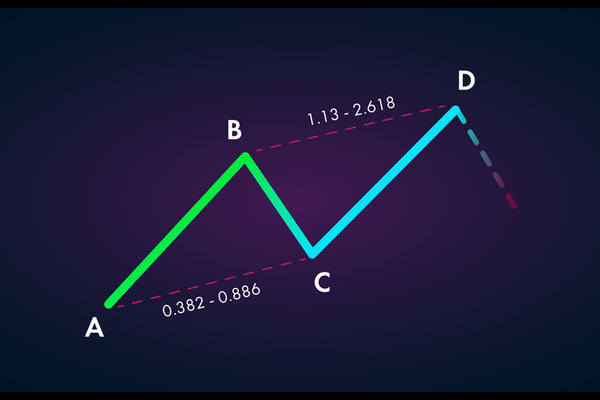The forex market, as an intangible market, does not need to gather at a designated trading venue for trading. Except for France, Germany, and other places where there are fixed trading venues, most transactions are only conducted through telephone or electronic trading systems. The forex market is divided into Hong Kong market, London market, and New York market, but in reality, the forex market no longer has regional and temporal characteristics, so the significance of differentiation is not significant.

1. New York Forex Market
The New York forex market is currently one of the most important forex markets in the world, due to the position of the US dollar as a global currency. After World War II, the US dollar became an international reserve and payment currency. All US dollar transactions around the world must be settled by American banks, and the currency settlement process is conducted through the interbank settlement system. The largest financial center in the United States is located in New York, so New York has also become the settlement center of the US dollar around the world.
The New York Forex Market is a market that operates in the form of an intangible market, where forex transactions are conducted through telephone, electronic communication equipment, and electronic trading systems. The United States does not have regulations on commercial forex business, nor does it have banks specifically handling forex business. Only the Federal Reserve Bank is responsible for the role of the central bank, formulating monetary policy and stabilizing the US dollar exchange rate. There are many participants in forex trading in the United States, including almost all banks, financial institutions, and forex brokers in the United States. With a large amount of capital flow, the US market has become the most volatile market among various forex markets.
The forex market is one of the main entities that constitute a country's financial market. The reason why the exchange rate in the US market is relatively volatile and particularly concerned by the market is mainly due to the overlap of some trading periods between the New York forex market and the London forex market, resulting in significant exchange rate fluctuations and active trading volume in the New York forex market; In addition, the performance of the US economy has a significant impact on global economic growth, so the New York forex market is not only a settlement center for the US dollar, but also a major international financial center.
2. London Forex Market
The London forex market is a very important forex market. Due to its superior trading time zone, some operating hours are connected to the Asian and US markets, and the types and models of currencies involved in transactions are also wider than other markets. Therefore, buying and selling are very frequent throughout the entire trading range, and the trading volume is also particularly high, making it one of the most important forex trading markets.
Participants in the London forex market include banks, financial institutions, forex brokers, and central banks engaged in forex business. The Forex Brokerage Association is composed of forex brokers, who are designated intermediaries between forex banks and are crucial for promoting transactions in the London forex market. The central bank of the UK is the Bank of England, which is responsible for formulating and regulating the forex market, maintaining exchange rate stability and market operation. The London forex market adopts an intangible market approach for trading, without a fixed trading venue. Like the New York forex market, it utilizes advanced communication equipment and electronic trading systems for operation.
The London forex market has a long history. Before World War II, Britain relied on its national strength, trade, and colonial advantages at that time to make the pound an international currency, laying the foundation of London's position as an international financial center and becoming the main forex trading market. After World War II, various colonies became independent, and the title of "British Empire" began to decline. In addition, the rise of American power and the birth of the euro posed a threat to the status of the London forex market.
3. Frankfurt Forex Market
The birth of the euro and the establishment of the European Central Bank have increasingly attracted global attention to the position of the Frankfurt forex market. After World War II, the German economy quickly recovered from its decline and collapse, and the position of the German mark in the forex market also increased accordingly. The largest forex market in Germany is located in Frankfurt and has gradually developed into one of the world's important forex markets, ranking second only to London in the European forex market.
The Frankfurt forex market is also an intangible market, mainly involving German banks and forex brokers. In addition to promoting trading activities, forex brokers also acquire rich information through trading. The main trading currencies in the Frankfurt forex market include the US dollar, euro, pound sterling, Swiss franc, etc.
At present, due to the headquarters of the European Central Bank located in Frankfurt, after the German mark ceased trading, the euro began to be fully convertible. In addition, the European Central Bank's international position has gradually become a market focus, and other European countries have also joined the EU as members, increasing their influence.
4. Tokyo Forex Market
The Tokyo Forex Market is the largest forex market in Asia and one of the most important forex markets in the world. Japan gradually redeveloped after World War II, and only after joining the International Monetary Fund did the Japanese government gradually relax its control over the forex market. In the 1980s, with the rapid economic takeoff, Japan's international status was enhanced, and the Tokyo forex market at that time could rival the New York forex market. However, after entering the 1990s, Japan was affected by the bursting of the economic foam, and the transactions in the Tokyo market were in a silent state. In recent years, the Japanese market has once again received attention. Due to the inability to connect the trading range with the London and New York periods, and the fact that the trading currency is still dominated by the US dollar, the amount of transactions settled in Japanese yen is not significant, which has affected the further improvement of Tokyo's forex market position in the international market.
The Tokyo forex market is also an intangible market, utilizing both parties' telephones and advanced telecommunications equipment to cooperate with electronic trading systems for trading. The main trading currencies are the US dollar, Japanese yen, and euro, and the forex market is generally more regular. The high and low exchange rates on the same day are indicated for reference in other markets in the future. The Central Bank of Japan is the Bank of Japan, responsible for stabilizing the Japanese yen exchange rate to avoid adverse effects on the domestic forex market due to significant price fluctuations.
5. Singapore Forex Market
The Singapore forex market is the second largest forex exchange trading market in Asia after the Tokyo forex market. In 1959, after Singapore broke away from British colonies, the government actively developed its financial business, lifted forex controls, introduced investment, and established the Asian Dollar Center in the 1970s. With the rapid development of the Asian region, Singapore's forex market has become one of the world's major forex markets.
The Singapore forex market is an intangible market, with the main trading currency being the US dollar. Singapore has a superior trading time zone, which can connect with Tokyo and Hong Kong in the Asian region, as well as Frankfurt and London forex markets in the European region. The main participants in the Singapore forex market include the Monetary Authority of Singapore, designated foreign exchange banks, forex brokers, etc. The Monetary Authority of Singapore is as responsible as the Central Bank. When the exchange rate is unusual, it will intervene, maintain the stability of the foreign exchange market, and be responsible for monitoring the daily operation of designated foreign exchange banks. Designated foreign exchange banks in Singapore must conduct transactions through forex brokers, who, as agents of designated foreign exchange banks, cannot directly engage in forex transactions with customers.
6. Hong Kong Forex Market
The Hong Kong forex market is one of the main forex markets in the Asian region and an important financial center. It began to develop in the 1970s and became prosperous in the 1980s, with the financial, industrial, trade, and real estate industries becoming the main economic pillars of Hong Kong. After 1973, Hong Kong abandoned exchange rate controls and implemented free floating exchange rates, attracting investment from overseas financial institutions. The amount of forex transactions gradually increased, making Hong Kong an internationally renowned financial center.
The Hong Kong forex market is located in two major time zones, coordinating with the closing of the Tokyo forex market and the opening of major European forex markets. It is an intangible market without designated trading venues, and the main participants in the Hong Kong forex market include almost all Hong Kong banks and financial institutions. Although there is no central bank established in Hong Kong, the Hong Kong Monetary Authority will intervene when there are fluctuations in the foreign exchange market. In October 1983, Hong Kong implemented a linked exchange rate control and pegged it to the US dollar, making the US dollar the main trading currency.
7. Zurich Forex Trading Market
There are no forex brokers in the Zurich foreign exchange and trading market, and all forex transactions are conducted directly between banks. The participating forex banks are Swiss banks. Credit Suisse, United Bank of Switzerland, etc., as well as branches of foreign banks in Switzerland, the Bank for International Settlements and the Swiss Central Bank, the Swiss National Bank. In forex transactions, the Swiss franc is mainly traded against the US dollar, and other currencies are cross traded through the US dollar. Therefore, the exchange rate between the Swiss franc and the US dollar is the main exchange rate in the Zurich forex market. The exchange rate between the Swiss franc and other currencies is calculated in US dollars.
8. Paris Forex Market
The Paris forex market is composed of around 15 major commercial banks and a considerable number of forex brokers. The Bank of France is also an important participant in the market, with the aim of supervising the forex market and intervening in the market when necessary to maintain the stability of the franc's return home.
In addition to the eight major markets mentioned above, there are also forex markets such as Bahrain, Milan, Amsterdam, and Montreal, which have a significant impact.
【 EBC Platform Risk Reminder and Disclaimer 】: There are risks in the market, and investment needs to be cautious. This article does not constitute investment advice.







